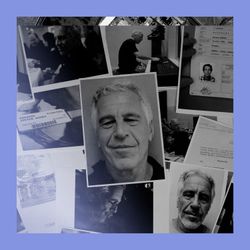Share

The Intelligence from The Economist
Khartoum is burning: fighting continues in Sudan
•
Ceasefires have failed, civilians are fleeing, and there is no end in sight to the fighting. We bring you an update on the escalating conflict. A Ukrainian church accused of spreading Russian propaganda is in trouble, raising questions about the limits of religious freedom. And a lucrative cricket league is about to get even more so by going global.
For full access to print, digital and audio editions of The Economist, try a free 30-day digital subscription by going to www.economist.com/intelligenceoffer
More episodes
View all episodes

The Weekend Intelligence: Inside Nepal’s Gen Z Revolution
41:38|Nepal’s youth took to the streets last September when the government banned social media. It became a protest about corruption. Police killed 19 protestors, the youngest just twelve years old. After a day of violence the parliament building in Kathmandu lay smoldering, the prime minister had fled, and Nepal was left with a burning question—what next?The Economist’s Jiehao Chen visited Nepal to meet the Gen Z revolutionaries trying to repair their fractured nation. Topics covered:NepalGen-Z protestsSocial media banListen to what matters most, from global politics and business to science and technology—Subscribe to Economist Podcasts+For more information about how to access Economist Podcasts+, please visit our FAQs page or watch our video explaining how to link your account.Music by Blue dot and EpidemicThis podcast transcript is generated by third-party AI. It has not been reviewed prior to publication. We make no representations or warranties in relation to the transcript, its accuracy or its completeness, and we disclaim all liability regarding its receipt, content and use. If you have any concerns about the transcript, please email us at podcasts@economist.com.Read more about how we are using AI.
The arrest is history: Andrew Mountbatten-Windsor
22:00|The detainment of King Charles’s brother is almost without precedent in Britain’s long royal history. He denies wrongdoing, but damage to “The Firm” is already assured. Saudi Arabia and the United Arab Emirates have fallen into a very public spat that may have grave implications far beyond the region. And our obituaries editor reflects on the life of Jesse Jackson.Guests and host:Sonny Loughran, Britain writerGregg Carlstrom, Middle East correspondentAnn Wroe, Obituaries editorJason Palmer, co-host of “The Intelligence”Topics covered: Andrew Mountbatten-Windsor, Britain’s royal family, Jeffrey EpsteinSaudi Arabia, United Arab Emirates, diplomacyJesse JacksonGet a world of insights by subscribing to Economist Podcasts+. For more information about how to access Economist Podcasts+, please visit our FAQs page or watch our video explaining how to link your account.
The splitting image: Yoon verdict will deepen divisions
25:47|Yoon Suk Yeol, South Korea’s ex-president, has been handed a life sentence for insurrection. That is by no means the end of the story of division in the country. Nervous AI-watchers fret about which workers might be replaced; our analysis suggests white-collar workers can breathe easy. And the memoir of Gisèle Pelicot, a rape survivor turned global symbol of strength.Guests and hosts:Noah Sneider, East Asia bureau chiefAlex Domash, economics correspondentAlexandra Suich Bass, Culture editorRosie Blau, co-host of “The Intelligence”Jason Palmer, co-host of “The Intelligence”Topics covered: South Korea, Yoon Suk YeolAI, white-collar jobsGisèle Pelicot, memoirGet a world of insights by subscribing to Economist Podcasts+. For more information about how to access Economist Podcasts+, please visit our FAQs page or watch our video explaining how to link your account.
The Robin Hood state: taxes are getting more progressive
22:12|Income inequality abounds and today’s rich are staggeringly rich, implying that tax regimes are giving the wealthy more and more of a pass. Our dig into the numbers suggests the opposite. We ask why so many of the world’s international mercenaries hail from Colombia. And despite the signs, Spanish may be reaching its peak in America.Guests and hosts:Callum Williams, senior economics writerCarla Subirana, news editorLane Greene, senior digital editorRosie Blau, co-host of “The Intelligence”Jason Palmer, co-host of “The Intelligence”Topics covered: Taxation, welfare state, inequalityColombia, international mercenariesSpanishGet a world of insights by subscribing to Economist Podcasts+. For more information about how to access Economist Podcasts+, please visit our FAQs page or watch our video explaining how to link your account.
Ice, ice, maybe: should the Arctic be refrozen?
22:03|Many scientists are considering the notion of actively cooling the region that is warming fastest. We examine the merits and the risks—both environmental and geopolitical—of messing with the polar climate. We ask why the kind of gig economy that has struggled in many markets is booming in India. And an unsettling peek into the first social network for AI agents.Guests and hosts:Oliver Morton, senior editorCatherine Brahic, environment editorKira Huju, Asia correspondentAlex Hern, AI writerRosie Blau, co-host of “The Intelligence”Jason Palmer, co-host of “The Intelligence”Topics covered: The Arctic, climate change, geoengineeringIndia, gig economyAgentic AI, social networking, MoltbookGet a world of insights by subscribing to Economist Podcasts+. For more information about how to access Economist Podcasts+, please visit our FAQs page or watch our video explaining how to link your account.
Check in the mail: our analysis of Epstein’s correspondence
25:33|Our data journalists trawled through the vast email archive of Jeffrey Epstein, a dead sex offender. It is a revealing look at how and with whom he communicated. As interest grows in banning young people’s use of social media, we argue there are better ways to mitigate harms. And a blindfolded introduction to “blouge”, a new, more climate-resilient wine variety.Guests and host:Rosie Blau, host of “The Intelligence”Dan Rosenheck, data editorTom Wainwright, media editorTom Standage, deputy editor of The EconomistTopics covered: The Epstein filesSocial-media bans“Blouge” wineGet a world of insights by subscribing to Economist Podcasts+. For more information about how to access Economist Podcasts+, please visit our FAQs page or watch our video explaining how to link your account.
Boss Class 6. The human defence
38:47|What's your unfair advantage over AI?In a future where computers can outperform humans at many tasks, where will people still have an edge?Andrew Palmer assesses the value of being human by visiting a chess tournament, writing the best management hip-hop song ever and facing his own clone for a final time.To listen to the full series, subscribe to Economist Podcasts+. https://subscribenow.economist.com/podcasts-plusIf you’re already a subscriber to The Economist, you have full access to all our shows as part of your subscription. For more information about how to access Economist Podcasts+, please visit our FAQs page or watch our video explaining how to link your account.To share this episode with a non-subscriber go to the episode page and click Share > 'Give as Gift'.
Boss Class 5. Closed problem spaces
32:56|Peering into the near future of AI:We can't know where AI will take us over the coming years. But it's certain that the technology will improve. In the penultimate episode, Andrew Palmer shares a vision of the near future, with the help of four people who are already living there.To listen to the full series, subscribe to Economist Podcasts+. https://subscribenow.economist.com/podcasts-plusIf you’re already a subscriber to The Economist, you have full access to all our shows as part of your subscription. For more information about how to access Economist Podcasts+, please visit our FAQs page or watch our video explaining how to link your account.To share this episode with a non-subscriber go to the episode page and click Share > 'Give as Gift'.
Stock options: how to hedge an AI bubble
22:24|Tech firms are spending so much on artificial intelligence that investors are getting nervous. Our correspondent explains whether it is possible to protect your portfolio from a crash. Turkey’s ruler has become increasingly autocratic–and increasingly old. Who might succeed him? And celebrating the life of literary agent Georges Borchardt. Guests and host:Rosie Blau, host of “The Intelligence”Josh Roberts, capital markets correspondentPiotr Zalewski, Turkey correspondentJon Fasman, senior culture correspondentTopics covered: Hedging against an AI bubbleTurkey after ErdoganObituary of literary agent Georges BorchardtListen to what matters most, from global politics and business to science and technology—Subscribe to Economist Podcasts+For more information about how to access Economist Podcasts+, please visit our FAQs page or watch our video explaining how to link your account.